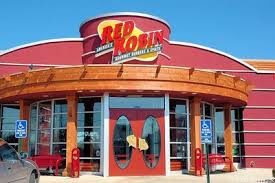 Getting restaurant permits are complex and costly endeavors leaving even the most experienced developer reeling with questions about the submittal requirements, expected timelines, and fees.
Getting restaurant permits are complex and costly endeavors leaving even the most experienced developer reeling with questions about the submittal requirements, expected timelines, and fees.
First-time restaurant owners and developers as well as experienced franchise developers need to be aware of the governmental process of getting zoning changes, building permits, and entitlements of their specific area before doing anything else. In this article, Permit Advisors will clarify some of the lingo and requirements you may face as a restaurant developer and will use California as the reference state for scenarios presented.
Zoning Changes
You’ve done it. You’ve found the perfect spot for your cute little restaurant concept, from the hard corner shell with a patio, to the rooftop of a metropolitan skyline, you’ve found it. The problem is the zone for the space is not for restaurant use, let alone alcohol consumption. What do you do? Well, the first thing you should do is get a permit solutions firm on your team. But, if you choose to get get the restaurant permits yourself read on.
Have a conceptual design of what your restaurant will look like. You will need to have square footage, valuation, and rough sketch of load bearing walls, points of connection for utilities, etc… It is useless to start going to the city without having this information first. So, get your design team to put together the most complete conceptual design they can with the information you have.
Go to planning or public works and decipher what is needed to turn your space into your concept. The local officials at the counter will not, I repeat, WILL NOT give you a generic list of requirements for a change of use. They will ask what you want to turn your space into before they tell you any requirements, and the reason is this: the standards of requirements change per use. Changing a retail space into a Starbucks will have different requirements than turning the space into Panera bread. Although they do not need to see your conceptual designs at this point it is good to have something concrete to give them to get the most accurate information possible. This, in the permitting niche, is called our due diligence phase.
During this due diligence phase is also where you will learn if a change of use is possible for your space. In some cases, when the planning department learns you will be applying for a liquor license they will tell you that a change of use is not possible but, you may apply for a conditional use permit. At this point you should start doing the following things:
- Community Outreach
- Getting on the city council agenda ASAP
- Start applying for the liquor license
- GET AN ENTITLEMENTS AND CODE SOLUTIONS FIRM
Also, another curve ball could possibly be needing to get an approval from the department of transportation or getting a case administration # for your project. These actions come from increasing the density of the area or the traffic of the area. For more information about conditional use permits read our article “Conditional Use Permits: What and How to Get Them.”
Anyhow, let’s go back to the change of use permit scenario. You now have the requirements for your space set by the local jurisdiction so you can have your architect draft the plans. From there, it is a series of submit, get comments, revise and write narrative, resubmit, and rinse repeat. For more on Change of Use Permits check out our article “Why Do Change of Use Permits Take So Long?”
<h2Permitting
*PRO-Tip: Towards the end of the change of use permit process you can start asking for a building plan checker to be assigned. They will always tell you they can’t or won’t assign it until you submit, but it never hurts to ask. Especially, if you’ve made friends with the planner who helped you through the change of use process.
 When it comes time to get the building permit package for your restaurant permits be careful to do another round of due diligence. Confirm nothing has changed where your space is concerned.
When it comes time to get the building permit package for your restaurant permits be careful to do another round of due diligence. Confirm nothing has changed where your space is concerned.
Here are some examples of departments you can assume will be required:
- Building (obviously)
- Mechanical: Think of your overhead hood, air conditioner, heater, etc…
- Electrical: If I have to explain this you don’t belong on your project
- Plumbing: *remember to check if you’re required to have a grease trap intercepter
- Health: You will need to do a health submittal because of the consumption of food and drink.
- Fire: *Double-check this is done at the city level. Most places the fire prevention review is done at the state or county levels
- Bureau of Engineering: Sanitation, Industrial Waste, Civil Engineering, etc…
- Grading
Liquor Licensing
Permit Advisors will be publishing an article on liquor licensing soon, so I won’t get into too much here. But, it should be noted as most restaurants will be wanting to serve some sort of liquid…ahem…libations. The best way to go about this is to think strategically. Figure out the license type you need, make friends with the city council member of your district, and be ready for it to take A LOT longer than you want. Lastly, whatever you expect to be paying for your liquor license DOUBLE IT. Liquor licenses are costly and time consuming things.

Conclusion
In conclusion, from the soup-to-nuts approach to restaurant permits is to be patient and have a big picture idea of the process. Permit Advisors can help you with this. We have worked on restaurants nationwide and have relationships, knowledge, and passion for solutions.
About us: Permit Advisors Inc is a nationwide permit expediting, entitlement, and consulting firm based out of Beverly HIlls, CA. We have established relationships with municipalities nation-wide and implement time as well as cost saving strategies to efficiently complete projects. We provide a project management team to ensure every aspect of the project is given specific attention while maintaining open communication between the jurisdiction, consultants, and our clients. We serve retailers, architects, landlords, tenant coordinators, contractors and franchisees nationwide in the hotel, retail, restaurant, mixed-use, multifamily, entertainment, grocery, and logistical plant development industries. Contact us today for a consultation at www.permitadvisors.com.
